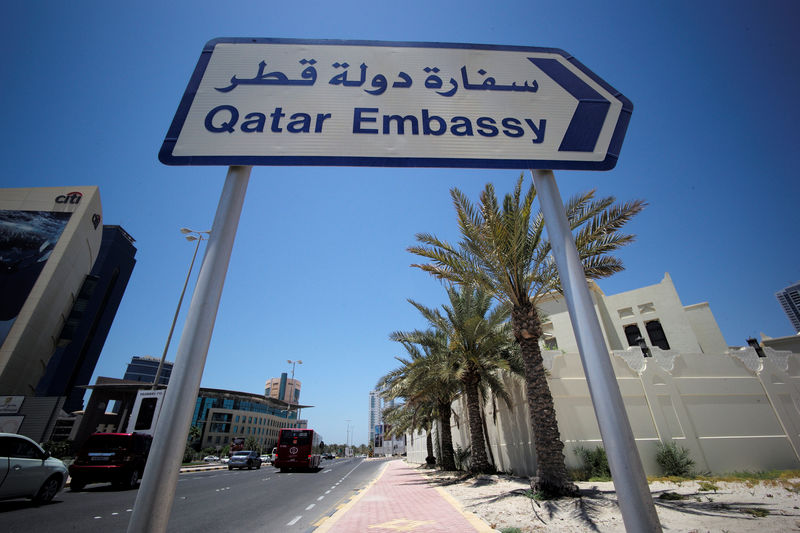(Bloomberg) -- Qatar’s Prime Minister Sheikh Abdullah Bin Nasser Al Thani will attend a summit in Saudi Arabia on Thursday, in the highest-level visit since the oil-exporting kingdom and its allies imposed an embargo on their neighbor two years ago.
The visit -- the first concrete step toward ending a rift that has seen diplomatic and trade ties severed -- comes as tightening U.S. sanctions raise tensions in the Gulf a year after President Donald Trump pulled the U.S. out of the landmark 2015 nuclear deal.
With intense diplomacy underway and U.S. appeals for Gulf Arab countries to close ranks against Iran, expectations are rising that a grand bargain to end the dispute may be looming.
The premier will hold meetings with top Saudi, Emirati and Bahraini officials, the Qatari-owned Al Jazeera news network reported, citing a senior official it didn’t identify. Qatar’s emir, Sheikh Tamim bin Hamad Al Thani, is unlikely to attend the three days of meetings, it added.
"The difficult and sensitive circumstances the region is going through as well as the daily escalation require wisdom and responsibility,” Lolwah Alkhater, a Qatar foreign ministry spokeswoman, said on Twitter. “Therefore Qatar’s participation along with responsible countries is a national and human duty to establish collective security.”
Emergency Summits
Gulf tensions have spiked since this month’s attacks on Saudi oil tankers and pumping stations rattled global oil markets and prompted the Trump administration to dispatch more troops to the world’s largest crude exporting region. The U.S. has blamed Iran and its allies in Yemen for the violence. Tehran has denied involvement.
Saudi Arabia called three emergency meetings of Gulf, Arab and Islamic leaders in Mecca this week to discuss the rising tensions, with all sides saying they are keen to avert all-out war.
Saudi Arabia, the United Arab Emirates, Bahrain and Egypt imposed an embargo on Qatar and cut off diplomatic relations in June 2017, accusing their neighbor of backing Islamist militants and being too close to Iran and its proxies.
The rift proved surprisingly difficult to heal despite repeated U.S. appeals for unity among its allies, and mediation efforts by Kuwait. Cut off by some of its neighbors, Qatar ended up boosting trade ties with Iran.
Deep Divisions
Early hints that a detente was in the offing came last year, when Saudi Crown Prince Mohammed bin Salman, architect of the embargo, softened his rhetoric toward Qatar. In the ensuing months, however, little progress was made on the ground as differences proved deep.
The spat brought into the open divisions that have long plagued the Gulf Cooperation Council, a six-member group of Gulf Arab countries established in 1981 as a counterweight to the then-newly-formed Islamic Republic in Iran.
Oman, which enjoys good ties with Iran, acted as a back channel under the Obama administration. Kuwait, fearing the blow-back from any Gulf instability, has sat on the fence. Saudi Arabia, the United Arab Emirates and Bahrain, have taken a much harder line against the Iranians and their proxies from Yemen, to Lebanon, to Syria
(Writes through with quote, context.)
